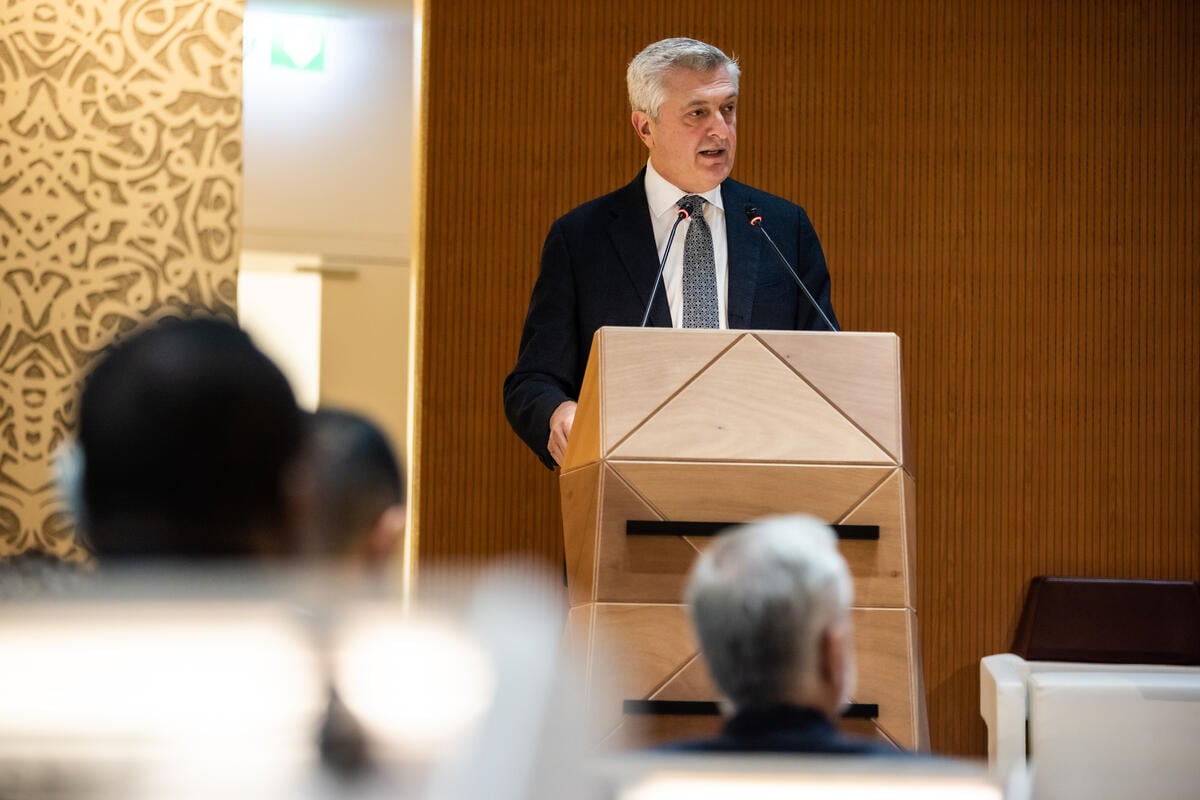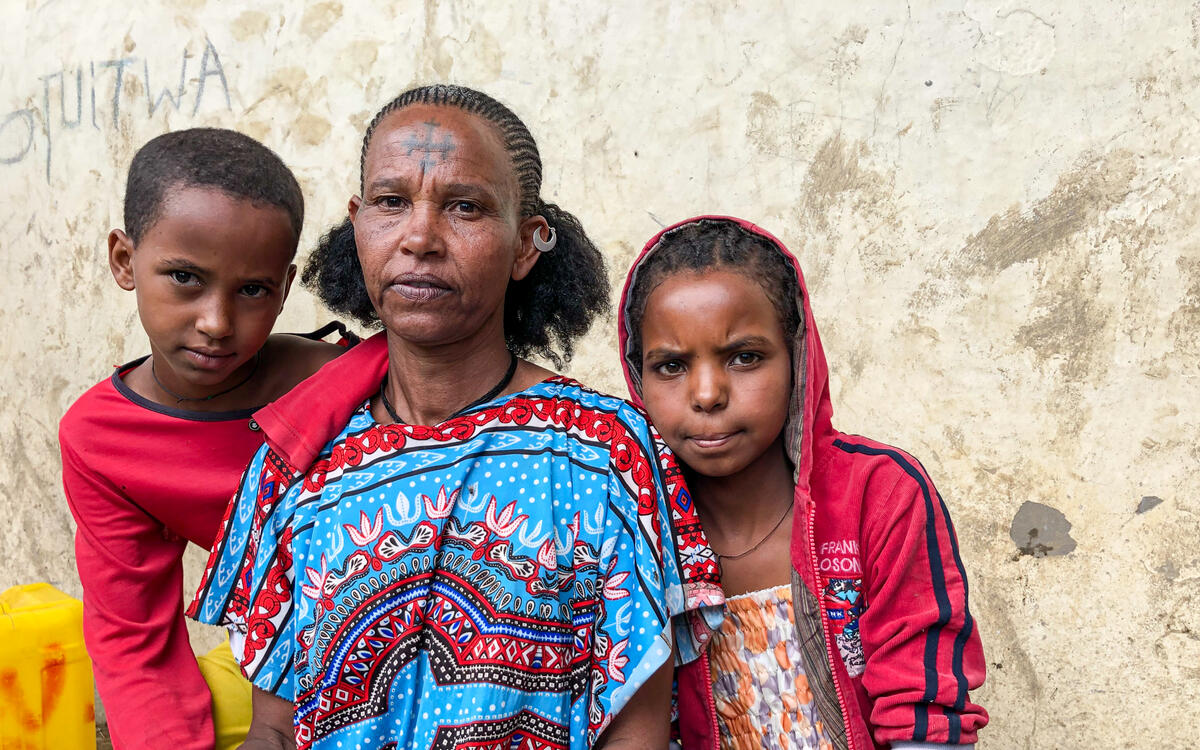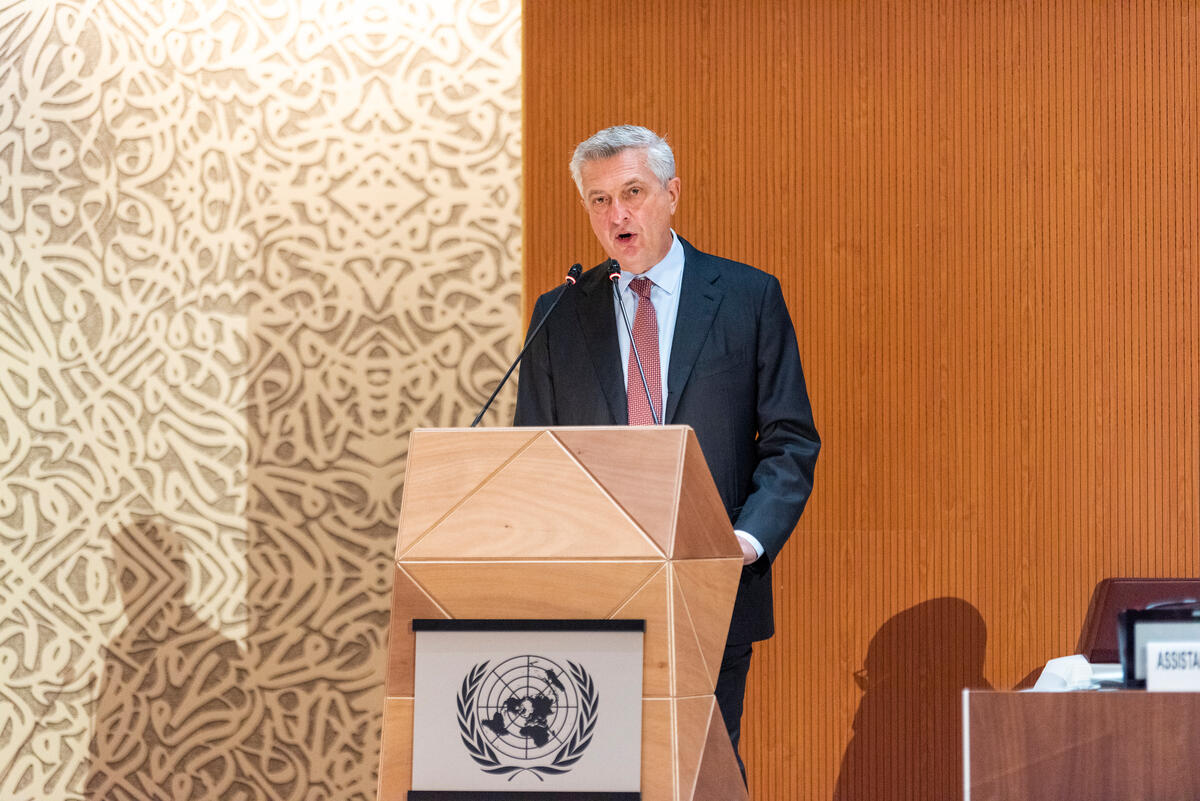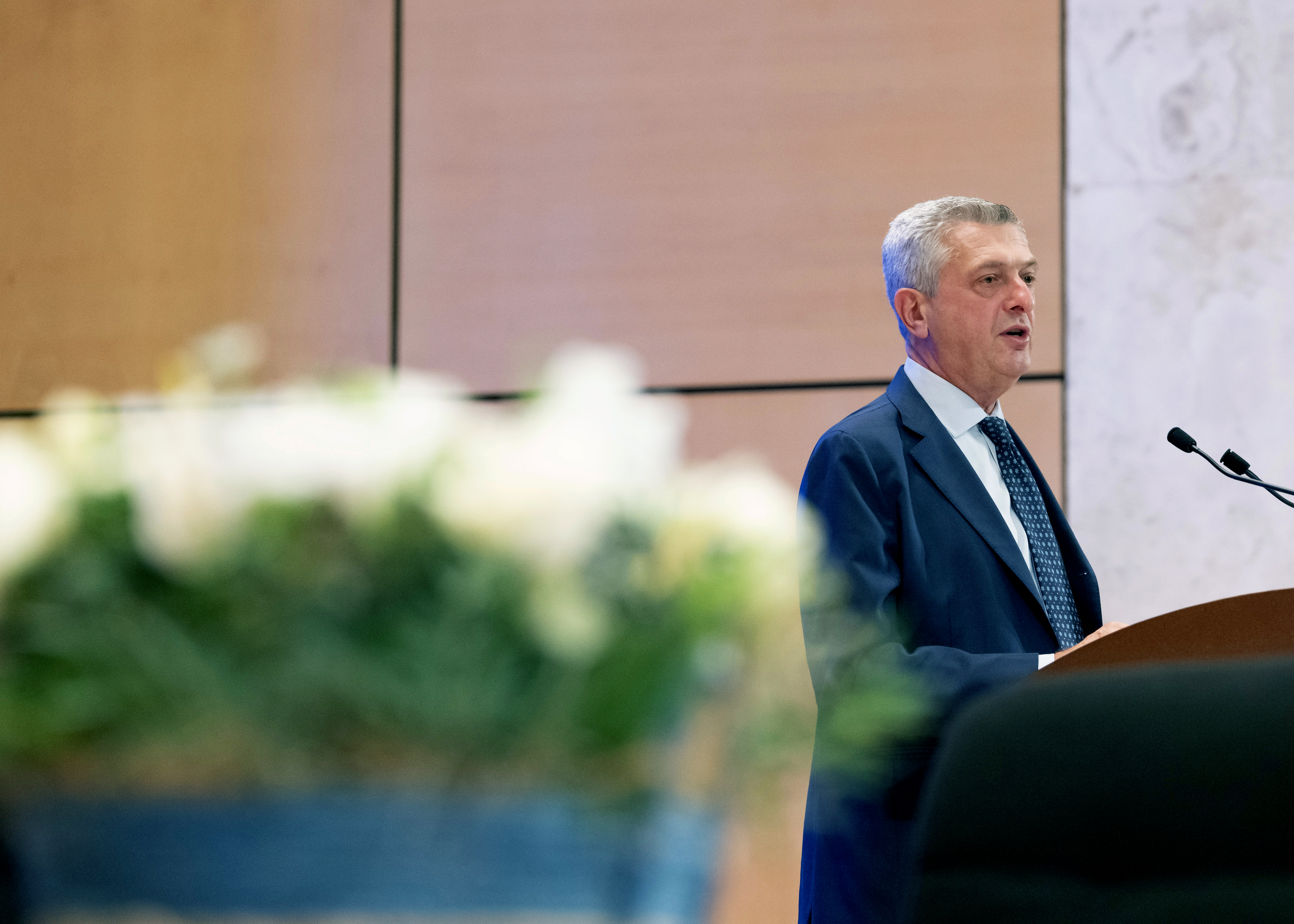High Commissioner Guterres opens annual 'ExCom' meeting
High Commissioner Guterres opens annual 'ExCom' meeting
Monday 3 October 2005
GENEVA - UN High Commissioner for Refugees António Guterres today called on the international community to join forces to fight intolerance, preserve the institution of asylum and bridge the gap between humanitarian relief and long-term development so that millions of uprooted people can rebuild their lives without fear of renewed conflict and displacement.
Opening the five-day annual meeting of the UN refugee agency's 68-nation governing body, the Executive Committee, Guterres declared that UNHCR is above all a refugee protection agency and that all staff members must see themselves as agents of protection. More than 6,000 UNHCR staff worldwide care for some 19 million refugees and others of concern.
Guterres, who took office in mid-June, said combating intolerance is perhaps the most difficult challenge faced today by UNHCR and its partners. He said UNHCR staff and those they help must deal daily with the "perverse impact" of intolerance. He decried the rise in political demagoguery and populist media campaigns aimed at cynically manipulating public opinion and playing on people's fears and prejudices.
"The rise of populism has led to a systematic and willful confusion in public opinion, mixing security problems, terrorism, migrant flows and refugee and asylum issues," he told delegates in the UN's European headquarters. "Preserving asylum means challenging the notion that refugees and asylum seekers are the agents of insecurity or even terrorism, rather than its victims. Unfortunately, there are many situations today where the concept of asylum is misunderstood, where it is even equated with terrorism. Terrorism must be fought with total determination. But asylum is and must remain a central tenet of democracy."
The former Portuguese prime minister appealed to responsible governments and civil society "to stand together" in "confronting this populist approach."
While the global number of refugees - those who have fled their country because of persecution and violence - is at its lowest level in nearly 25 years, Guterres noted that there are still up to 25 million internally displaced people worldwide who have been forced from their homes but who remain within their own country and therefore are not covered by the 1951 Refugee Convention.
Guterres said UNHCR intends to be a "fully engaged" partner in the UN's collaborative approach in addressing internal displacement. While it remains the primary responsibility of the state itself, Guterres said the inability of the international community to address the problem of internal displacement was its biggest humanitarian failure. UN Emergency Relief Coordinator Jan Egeland, who is leading the strengthened collaborative effort, is scheduled to take part in Monday's session.
"The plague of internal displacement demonstrates all too clearly that racism, xenophobia, ethnic conflict, violent nationalism and religious fundamentalism are still alive and strong in our world today," said Guterres. "We can defeat them only in the name of tolerance, not a value of any specific civilization but of civilization itself."
A second challenge is working with governments to sort out mixed asylum and migration flows. Guterres noted that migration and security are regular features of public debate and combined, were putting enormous pressure on asylum systems and legislation.
"Preserving asylum requires that we be able to find those in need of protection when they are concealed by complex migration flows, as is the case in the Mediterranean and the Gulf of Aden," he said in a reference to the thousands of people moving from Africa toward Europe and the Middle East. "All states are entitled to the responsible management of their borders and to adopt appropriate migration policies. They should also act forcefully to eliminate the smuggling and trafficking of human beings and severely punish the profiteers. But guarding borders must not prevent physical access to asylum procedures or fair refugee status determination for those entitled to it by international law. A tough and uncompromising crackdown on abhorrent criminals must go hand-in-hand with a humanistic concern to protect their needy victims."
Ensuring that those genuinely in need of protection receive it requires effective advocacy and timely intervention by UNHCR and its partners, including access to mixed groups of new arrivals and improved screening of individuals. It also involves gathering and making effective use of information, Guterres said.
"Let me be very clear," he said. "Measures against fraud and abuse are part of delivering protection and essential for the credibility of the asylum system. I am aware of the dilemmas often faced by governments, but my office stands ready to assist all states ..."
A third major challenge involves the 'gap' between humanitarian relief provided by field-based operational agencies like UNHCR - often in emergency situations - and longer-term development. Guterres described this gap as a "great handicap," arising in part from a lack of collaboration, coordination and planning between relief and development agencies, and sometimes exacerbated by conflicting strategies and poor coordination by some donor countries. If refugees are to go home and stay home, he said, there must be a smooth transition from short- to longer-term assistance to ensure that devastated societies and institutions are rebuilt and returns are sustainable.
"Roughly half of all post-conflict situations slide back into violence within five years," Guterres said. "Prevention and post-conflict management are therefore both crucial to avoiding population displacement. This is why UNHCR is extremely enthusiastic about the advent of the Peacebuilding Commission" endorsed by the recent World Summit at the UN in New York. UNHCR will take an active role in supporting the commission, he added, because "the consolidation of peace necessarily includes durable solutions for refugees and displaced persons."
Secretary-General Kofi Annan is scheduled to address the Executive Committee on Thursday.









